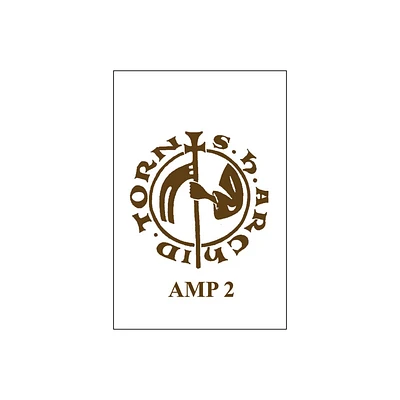Home
Henrici de Gandavo Summa (Quaestiones Ordinariae), art. XLI-XLVI
Loading Inventory...
Barnes and Noble
Henrici de Gandavo Summa (Quaestiones Ordinariae), art. XLI-XLVI
Current price: $124.00


Barnes and Noble
Henrici de Gandavo Summa (Quaestiones Ordinariae), art. XLI-XLVI
Current price: $124.00
Loading Inventory...
Size: OS
*Product Information may vary - to confirm product availability, pricing, and additional information please contact Barnes and Noble
The first two volumes of Henry of Ghent's
Summa
were published in 1991, edited by Dr. R. Macken, and in 1994, edited by Dr. G.A. Wilson. Now a third volume has been published, containing the articles 41-46, dealing with the goodness and perfection of God, His totality (
totalitas
) and infiniteness, His will and love. In 1277 a polemic began between the theological and philosophical faculties of the University of paris. In this polemic Magister Henry of Ghent (+1293) defended the position that knowledge of God could only be achieved by linking the divine concept to the biblical Neo-Platonic and the Aristotelian-cum-Averroean traditions. He found answers to every question posed by the philosophers and guided theologians through the philosophical labyrinth.
His work is definitely on a level with the penetrating questions Thomas Aquinas asked in his
. The history of the texts written by the scholastics presents the double aspect of the university tradition and frequent text revisions. The copied texts were corrupted as a result of frequent emendations. A computer text editing programme (Critical Edition Typesetter) helps us to reestablish both emendations and corruptions (including emendations resulting in further corruptions). The list of variant readings should not only show the textual corruptions, but should also highlight the textual criticism of the scholastics which caused particular texts to become recognized as the standard.
Summa
were published in 1991, edited by Dr. R. Macken, and in 1994, edited by Dr. G.A. Wilson. Now a third volume has been published, containing the articles 41-46, dealing with the goodness and perfection of God, His totality (
totalitas
) and infiniteness, His will and love. In 1277 a polemic began between the theological and philosophical faculties of the University of paris. In this polemic Magister Henry of Ghent (+1293) defended the position that knowledge of God could only be achieved by linking the divine concept to the biblical Neo-Platonic and the Aristotelian-cum-Averroean traditions. He found answers to every question posed by the philosophers and guided theologians through the philosophical labyrinth.
His work is definitely on a level with the penetrating questions Thomas Aquinas asked in his
. The history of the texts written by the scholastics presents the double aspect of the university tradition and frequent text revisions. The copied texts were corrupted as a result of frequent emendations. A computer text editing programme (Critical Edition Typesetter) helps us to reestablish both emendations and corruptions (including emendations resulting in further corruptions). The list of variant readings should not only show the textual corruptions, but should also highlight the textual criticism of the scholastics which caused particular texts to become recognized as the standard.













